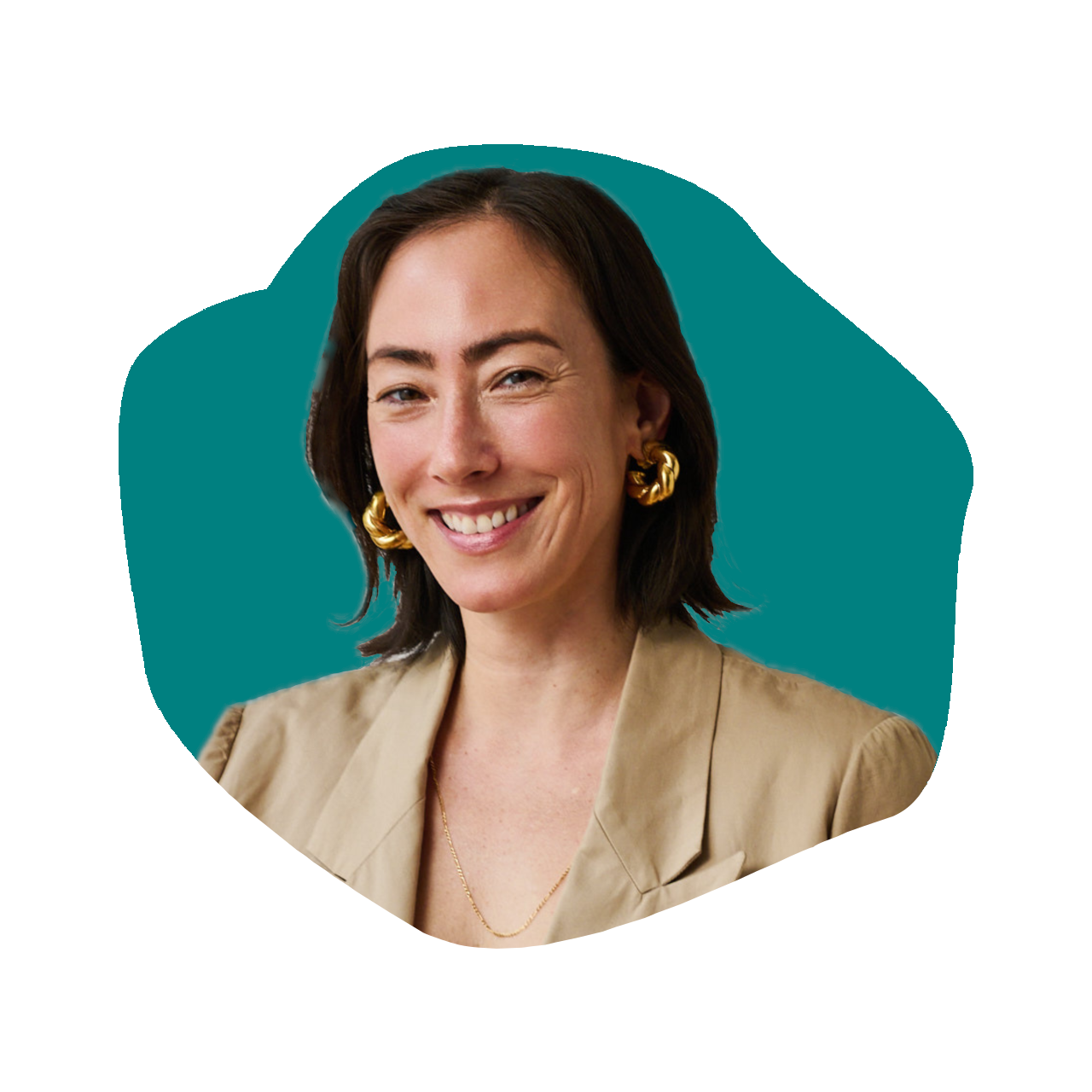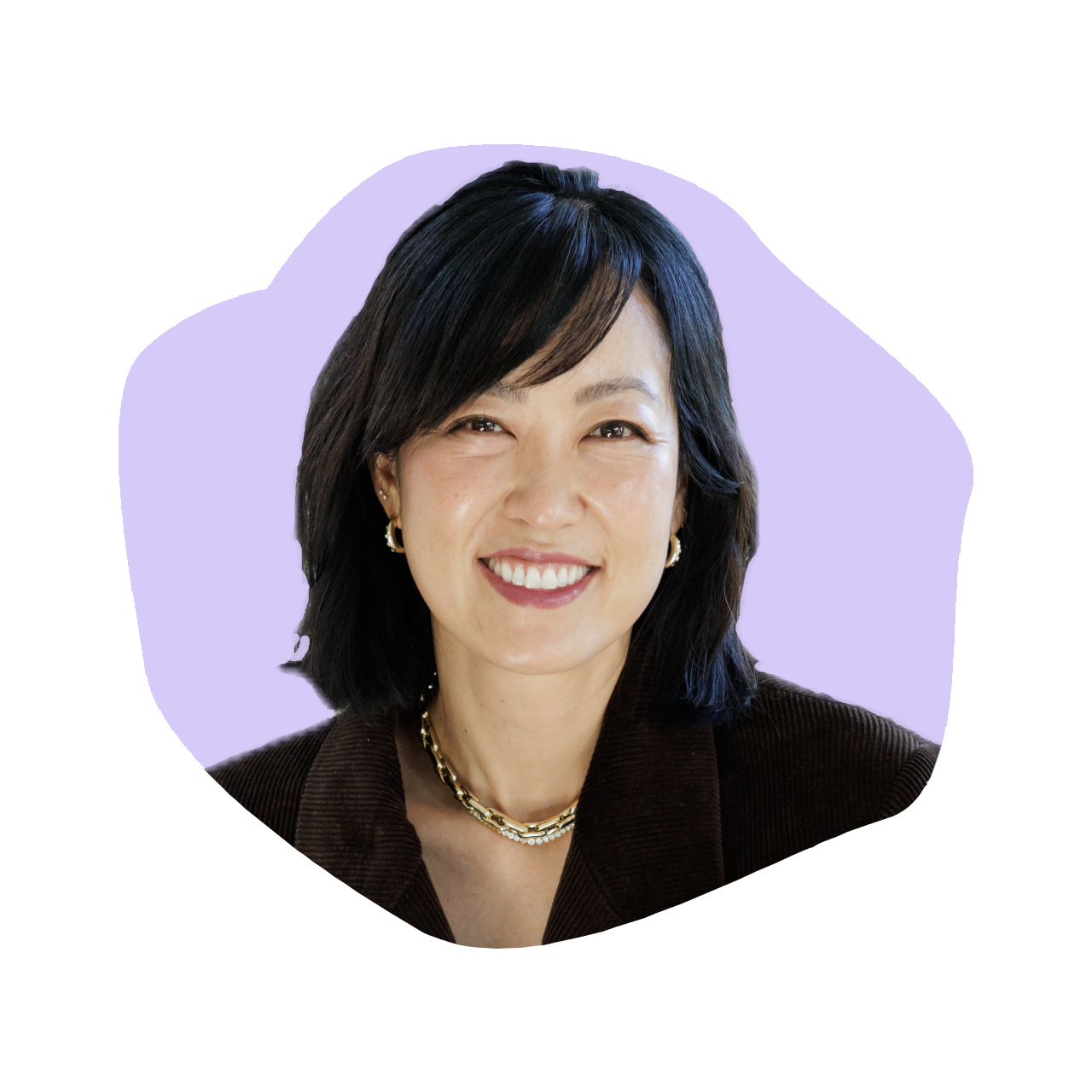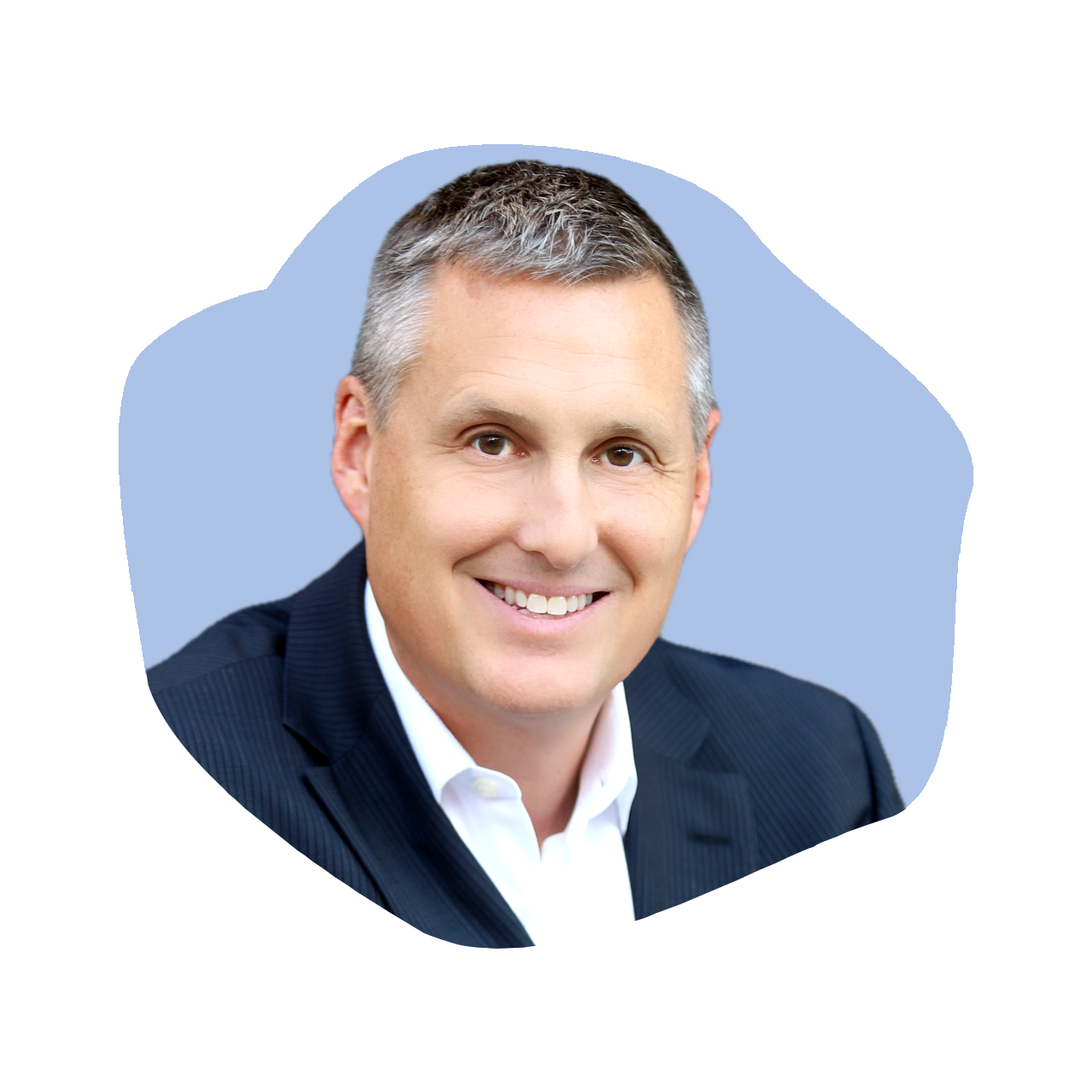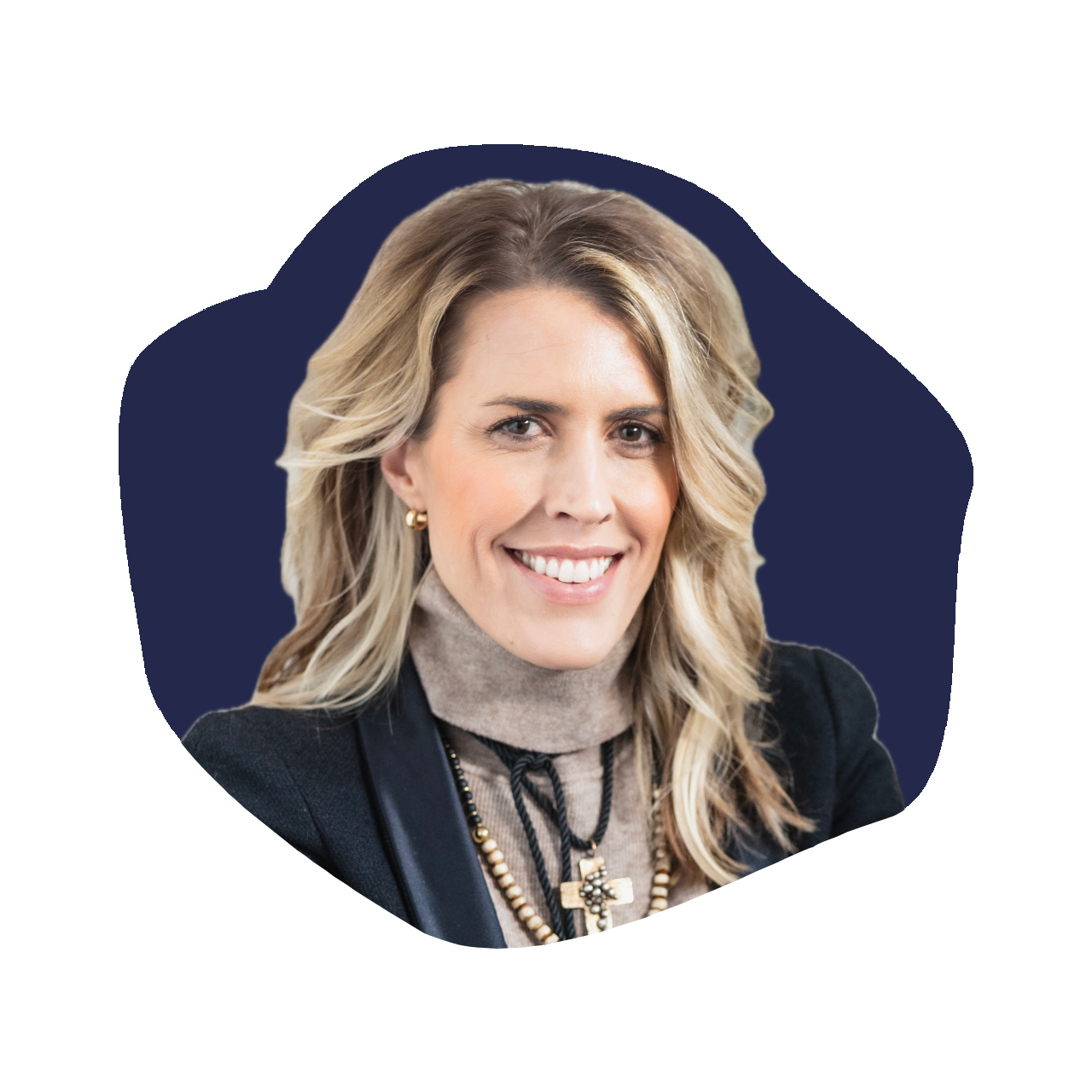Debra Whitman: Author of The Second Fifty
Episode 633
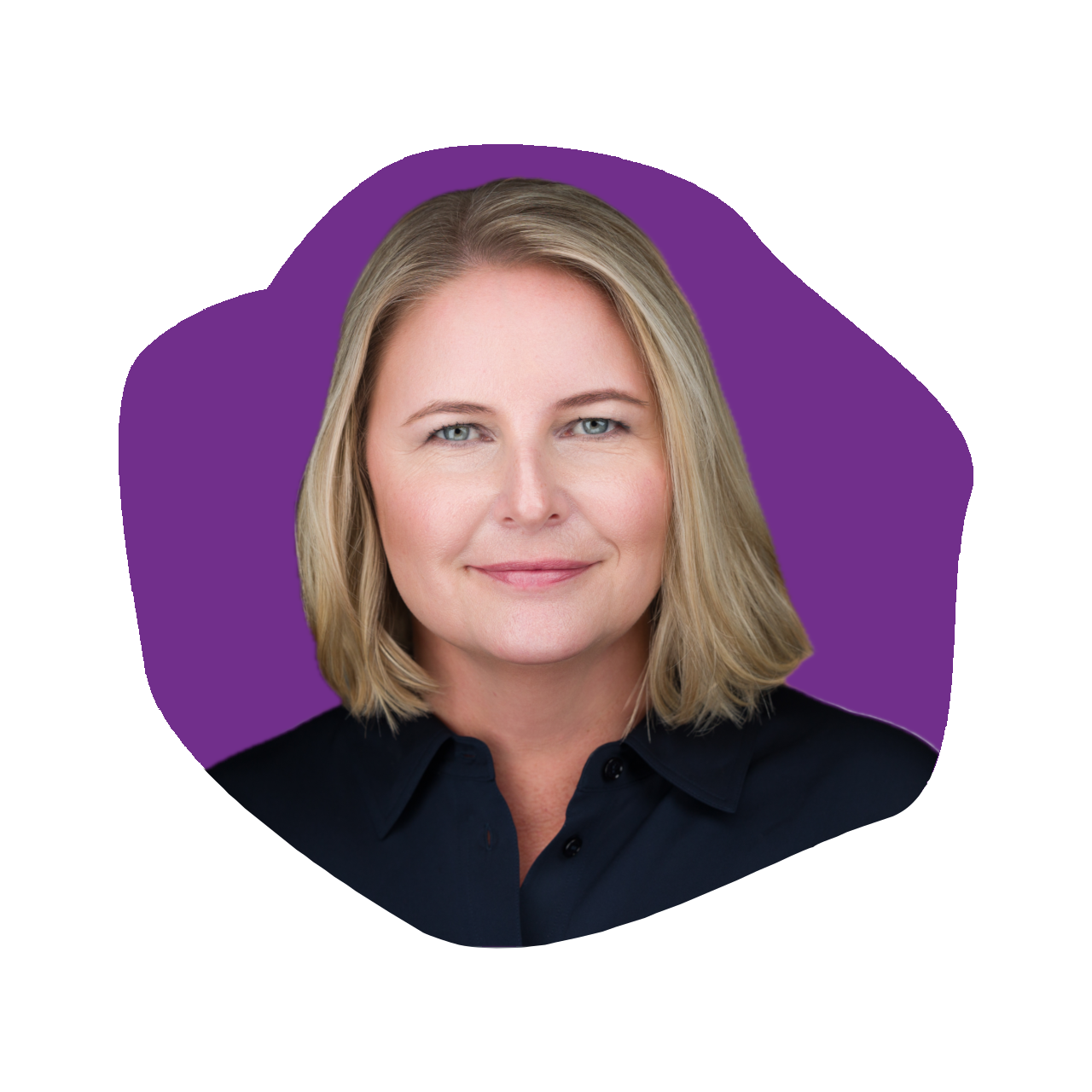
On this episode of The Kara Goldin Show, I’m thrilled to sit down with Debra Whitman, AARP’s Executive Vice President and Chief Public Policy Officer, and the author of The Second Fifty. Debra shares her expertise on aging and public policy, offering a deep dive into the challenges and opportunities that come with a longer life expectancy.
In her book, The Second Fifty, Debra addresses the critical questions facing those in midlife and beyond, drawing on her vast experience in policy and research. We discuss the inspiration behind her book, the surprising discoveries she made about aging, and practical strategies for enhancing life as we age.
Debra also sheds light on the importance of work in later life, the realities of end-of-life planning, and the bipartisan policy issues that need urgent attention to support aging populations. This episode is filled with valuable insights for anyone interested in the intersection of aging, policy, and personal growth.
Don’t miss this enlightening conversation, packed with actionable advice for navigating the second half of life with purpose and policy impact. Don’t miss it! Tune in now on The Kara Goldin Show!
Resources from
this episode:
Enjoying this episode of #TheKaraGoldinShow? Let Kara know by clicking on the links below and sending her a quick shout-out on social!
Follow Kara on LinkedIn – Instagram – X – Facebook – TikTok – YouTube – Threads
Have a question for Kara about one of our episodes? Reach out to Kara directly at [email protected]
To learn more about Debra Whitman and The Second Fifty:
https://www.linkedin.com/in/debra-whitman/
https://x.com/policydeb
https://www.aarp.org/entertainment/books/bookstore/money-work-retirement/info-2023/the-second-fifty.html
Transcript
Kara Goldin 0:00
I am unwilling to give up that I will start over from scratch as many times as it takes to get where I want to be. I want to be you. Just want to make sure you will get knocked down. But just make sure you don’t get knocked out, knocked out. So your only choice should be go focus on what you can control. Control. Hi everyone, and welcome to the Kara Goldin show. Join me each week for inspiring conversations with some of the world’s greatest leaders. We’ll talk with founders, entrepreneurs, CEOs and really, some of the most interesting people of our time. Can’t wait to get started. Let’s go. Let’s go. Hi everyone, and welcome back to the Kara Goldin show. Super, super thrilled to introduce you to a truly inspiring guest, we have Deb Whitman, who is a powerhouse in the world of aging and public policy, and she’s the author of a brand new book, which takes a look behind the scenes of The Second Fifty. It’s called The Second Fifty answers to the seven big questions of midlife and beyond. And Deb is also in her spare time, well actually, and probably most of her time. She’s ARPs chief public policy officer, and she’s at the forefront of changing how we think about aging. I love it. She’s here to drop some serious knowledge and insight about making the most of life after 50, and how to kick those stereotypes to the curb. So welcome, Deb, so excited to have you here. Thanks so much for having me. Absolutely so I have the book here, in case anybody’s watching this on video. It’s called The Second Fifty. And for those who are unfamiliar or who haven’t seen or heard much about this book yet, Deb, can you give us a little overview of what you’re going to find in The Second Fifty
Debra Whitman 2:05
I’d love to so I’ve been working on aging issues for the last 25 years. I worked at the Social Security Administration. I ran worked in the US Senate for over a decade, including one is running the Senate aging committee, and then have been at AARP now for over a decade. But then I was about to turn 50, and things got real, right? I started thinking, Well, what do I need to know about this my second half of life? What is it that I don’t know? What do I need to learn? And so I wrote down a list of questions that were important to me, and those became the chapters of the book. So it’s some basic things like, how long will I live? How much do I have to plan for? Is it 50? Is it not will I be healthy? I wanted to know some practical thing, like, How long am I going to work, and will I have enough money? And then I also wanted to touch on some difficult things, will I lose my memory? Most of us are afraid that we will, even though the chances are smaller than people think, and we can talk more about that, and how will I die? And then, because of my day job, I also have a chapter of the things that we can do as a society to make it easier for everybody to age while in America.
Kara Goldin 3:29
I absolutely loved your book, so I’m in that bracket over 50 as well. So probably from a personal experiences and some of the questions that you lay out in the seven big questions, definitely it. It was very relatable for me, for sure, when you look back on, I mean, this is your career. You have been thinking about aging for some time. Was there something that kind of sparked? Why did you go into this? I mean, what was it, if you recall, that really led you into this arena?
Debra Whitman 4:06
It’s a pretty easy answer. I grew up living with my grandmother. My mother was her caregiver for over 50 years. She lived with us. She had schizophrenia, so had health issues, but we were very close. She was always taking care of me. My job was to get, make sure she got her pills on time. And, you know, I made me really both appreciate people as we age and to understand, you know, the complexities of life as we age. So it was just kind of a natural part of my life that I didn’t realize that not everybody had their grandmother living with them, and it it really spurred a lot of the action and activity that I do. Everything from one of my proudest moments was working on mental health parity legislation to make sure that mental illness is covered like the other health issues. Issues and and many other things. So it was, it was really to my grandmother that I that I went into the field.
Kara Goldin 5:09
So when we talk about this demographic, the over 50, how big of an audience is this? It’s
Debra Whitman 5:17
huge and growing. For a couple reasons, we’re living longer, and there’s just more of us that that are surviving as we age. So we have 10,000 people turning 65 every day, and it’s changing our society. In fact, you know, it’s really changing the planet. We talk about climate change as one of the big things that’s changing in the world. We rarely ever talk about how demographic change, the aging of the population, is also going to change the world. Now both. We haven’t prepared for I see aging as a huge you know, opportunity, because we have more people with more experience and more knowledge and more talent, but we have to, you know, seize on those opportunities and make sure that we’re supporting people as they age, not just creating a society where, after a certain age, everybody is kind of thrown away and not not appreciated. It’s
Kara Goldin 6:21
so true. I remember, you know, growing up that I had some of the oldest parents on the block. My parents had me when when they were 40, and it was I remember being very aware of the age 55 like my parents. For some reason that number was such a big number like, that’s when people retired. That’s when pensions came into effect, like all of these things that I think, many of which are non existent today. But how has that number kind of shifted in today’s society? I don’t think that 55 is as relevant today, because I think there’s many more people working a lot longer and but I’m curious sort of, what that spurs for you when I say that,
Debra Whitman 7:13
yeah, so I call it The Second Fifty, kind of as a metaphor, not that everybody’s going to live to 100 but it is this pivot time of life, and it maybe it’s because we get our AARP membership card sent to us that year where, where people start to think about, okay, life is changing. You know, we have programs like Social Security that starts at 62 but full benefits aren’t going to be available till 67 in just a few years, Medicare is 65 so there’s lots of different sort of milestones based on programs, but also, you know, based on our health. You know, where whether we’re able to continue to work, or whether we start developing health conditions are, you know, the types of careers and jobs that we’re able to have at different age. There’s all kinds of milestones in the second half of life, just like there are in the first half, to be clear. You know, we have all of these. You Know What to Expect When You’re Expecting and, you know, I wrote this when my kids were about to go to college. So I had tons of books with lots of advice about, you know, career choices they could make, and which is the best college. But we don’t often think about the second half as having some of these milestones. And I wrote the book so that, you know, you know, you can skip the How long will I work chapter if you’ve already retired, you know, maybe, maybe the dementia chapter is more something that you worry about in your 70s. So maybe read that one or the Where will I live chapter about housing and long term care. It doesn’t have to be read forward to backwards. But, you know, sometimes those issues come to us from other people too. I had really great conversations with my own parents about each of the chapters, and learn something for them too. And I have several friends who are have parents with health issues that are reading and rereading certain certain chapters.
Kara Goldin 9:16
Yeah, definitely. And I think that that’s, I would say that that’s a big thing that so many people go through right after 52 is aging parents. So it’s not just about taking care of yourself, but it’s also, you know, at times, taking care of other people, because maybe they haven’t done the planning that you know we all wish everybody had, right? So it’s uh, it’s definitely relevant. So during your research, what were some of the big kind of discoveries about aging that you really hadn’t expected? And maybe that’s sort of an odd question, because you’ve been living this so long, but what, maybe, what do you think most. Most people would be so surprised about
Debra Whitman 10:02
there were lots of discoveries. I have to say, I learned a ton, and that was my favorite part about writing. It was not, was not the writing. Actually was doing the research and talking to experts and and some things like, I knew the what, but not the why. So I knew, for example, women in the United States, on average, live six years longer than men, but I didn’t know why. So I, you know, went deep into the rabbit hole and and found the research. You know, piece of it’s our biology, our home loans protect us from infections, but also give us autoimmune diseases. And then a piece of it is our behaviors. And I found this incredible report about amongst nuns in Bavaria during during the 18 to 1900s and how long they lived. And you know, they’re eating the same thing. They had a similar lifestyle, but the women still live two years longer. So even controlling for behaviors like the fact that many men don’t go to the doctor when they should, or are more in wards, or have guns, women live two years longer and so. So that was really interesting to me, the why behind some of these and then other things. Like I thought I knew that when I talked to an expert, I realized I was wrong or was about to give the wrong advice to people, one of these being about advanced directives, which I was thinking everybody needs. That’s common knowledge that everybody should have a piece of paper that says how they do and don’t want to be cared for at the end of life. And I talked to, you know, a palliative care expert who said, Dad, you know, if you check the box that I don’t want to be on a ventilator when you’re healthy and 20, and then, because of COVID, you need one, you might not get that. And so people, people don’t understand what their what treatments will be necessary for them, and may fill out the form in a way that actually is against their wishes. And so she said, talk to somebody who you can share with what things are most important to you that can be a decision maker in the moment, given the conditions that are that are happening. So, so you know, those are just a couple stories of of me going deeper into information that I didn’t know, which you know now I did that research for you all, or talking to the experts and sort of myth busting a little bit that was really fun to do.
Kara Goldin 12:41
That’s so so interesting. So based on the research, what changes did you personally make, I guess, to enhance your own aging process? So
Debra Whitman 12:54
one of the key findings was how important our relationships are to our health, like we know we should eat right and exercise, and in fact, If You Eat right, exercise, don’t smoke, don’t drink too much, and maintain a healthy body weight, you’re going to live probably about a decade longer and healthier. But the research also shows that our relationships really matter to our health and longevity, looking at people in their 80s that were healthy compared to the ones that weren’t. Some researchers looked back 50 to the age 50 and said, Okay, how, what were people doing their 50s to make them healthy in their 80s? And it was about the quality of their relationships. And so I’m really taking that to heart, to both invest more in conversations with my family, but also reaching out to friends more often. You know, we know that loneliness and isolation is like smoking 15 cigarettes a day. You know, how are we going to build the communities you know, across our life with both really close people, but that even just, you know, talking to people in the checkout line, even those kind of relationships can help matter and keep away loneliness and isolation.
Kara Goldin 14:11
Yeah, it’s fascinating. I was just having a conversation with some of my girlfriends about this topic and trying to figure out, now that they’re empty nesters, are they going to stay where they are? Are they going to move somewhere else? And I had never really thought about community in the same way as I do today, and how some people have made a move to move to you know, their their dream retirement house, they wouldn’t necessarily call it retirement, but this great place that has land and great but then it’s too it ends up that it’s just too isolating and that they’re not around enough people and and so more and more people are choosing to go. Into kind of neighborhoods where they’re able to be around more and more people, where they can meet more people. So I’m curious, have you seen more of that amongst this generation too?
Debra Whitman 15:14
We are both, both people looking to, like, move together. Sometimes it’s to save money, right? And you know, particularly people that may not have friends or family who you know they can count on to take care of them if they need some help. So, you know, we’re seeing, you know, sort of Golden Girls style, movement of people moving in together. And then we’re seeing Whole neighborhoods band together, and they call these the villages where it’s a whole range of different styles, and I think there’s hundreds of them within the country, but they pool money to maybe have a handyman that can help several different houses at once, or a list where some people can drive others to a doctor’s appointment if they need it. So the innovation around in solving the problems of aging, I think both both from individuals and even the private sector, we also need to bring to the public sector,
Kara Goldin 16:22
definitely. So your book touches on the topic of mortality, which is often a topic that is often avoided, at least until tomorrow, but that tomorrow often doesn’t, doesn’t come for sure. How did you approach this in your chapter, if you can talk a bit more about or I should say, How did, can you share how you did approach this in your book? Yeah,
Debra Whitman 16:52
so I wrote the chapter, chapter question, how will I die? Um, you know, and I wanted to know a few things. One, you know, everybody wants to die quick and painless. Does that really happen for many people? Unfortunately, not only about 15% of us die that way. I wanted to know, you know, things like advanced directives and wills and what, you know, what kind of practical advice could I give to people? And then I also kind of wanted to, you know, look at the fun side of death. I went to New Zealand to see how they’re aging in that country. And I visited this place called the Kiwi coffin club. And I have to say they were having so much fun. They decorate their own coffins. So it’s kind of like arts and crafts. They have stencils and paints. And you know, one woman was making a coffin with designs from all of the hikes that she had done in her life, her favorite her favorite views. And, you know, they had, they had some Elvis, cough coffins and all kinds of others. But it was also, you know, a group that talked about death, and they had played games and had tea, and it was sort of a social group as well. And I just, and then it was also a volunteer group. They would give coffins to families with children who who had terminal cancer, or people that couldn’t afford their own family’s burial. So, you know, I think we we need to be able to talk about death and and writing that chapter, I asked my parents some questions that I wouldn’t have otherwise way, asked them, you know, what do you want in your funeral? And I was so glad I did. I thought they wouldn’t want to talk about it, but, you know, my mom said, Oh, well, whatever you want to do. And then I pushed a little harder, and she said, actually, you know what’s important to me? I want two funerals. I won. I want one in the little town where I’m from, and then another one in the little town where my dad’s from. Rose should be buried where his family is so nobody has to drive. And you know, that was really important to hear. So now you know, she will have two funerals. So I think a lot of us are afraid to talk about death, and it’s not easy. I interviewed somebody what it was like to be with somebody when they died, because I couldn’t find that information. So I talked to a palliative care nurse, I talked to widows, and, you know, hopefully, kind of demystify a little bit of that part of life, because we we fear what we don’t
Kara Goldin 19:46
know. How does your book explore the role of technology in maintaining health and independence as we age? I do
Debra Whitman 19:56
a little bit. I wish you know. I wish I could have gone deep. Paper, I think technology has been great, particularly around connection. So we think during the pandemic, suddenly every grandmother learned how to zoom, or whatever your platform of the day was, FaceTime. You know, people were able to use technology to be connected in a way that they hadn’t before. Now that assumes they all have broadband and connectivity, and we know that that’s not universal. There’s also more technology like telehealth, which is really helping making it easy for people to do appointments without having to drive long distances. My parents live an hour and a half from a major hospital, and so it’s a long way to go back and forth every time they need an appointment. So there’s those kinds of things, and then, you know, I think there’s, there’s hope that we can use more technology for caregiving. Certainly, there is ways to lift people that is less hard on the caregiver. And, you know, we even at AARP, have a tech incubator, so we work with startups around the health space, and have a variety of different ones that we’ve helped everything from dispensing medication at the right time so that people know what to take when, to using VR to help people have memories of places that they want to visit or seen in The past,
Kara Goldin 21:36
so people are living longer, obviously, and and, you know, we always hear about some of the different things that policies that governments and various intervals of our of our life have implemented. What do you think is still missing as it relates to to what this, this consumer needs from from our, us, government, at least. So,
Debra Whitman 22:08
you know, it’s that time of year where potholes start showing up, right? You’re driving along all of them, boom, you hit something. And that’s kind of how aging is, right. Now, you don’t realize there are huge things missing. Actually, there was a sinkhole in one of my routes home a couple years ago that was literally eating up cars. And so we have potholes and we have sinkholes, things like Medicare does not cover your eyes, your teeth or your ears, three things that all age with the rest of you, but it doesn’t cover glasses, dentures or hearing aids. Medicare doesn’t cover long term care, so if you need a doctor’s appointment or a expensive drug, it will cover it, but if you need somebody to help, help you get out of bed or cook a meal for you it doesn’t cover it. And a lot of times, people don’t realize these things until they have a toothache, they fall and break their hip, and they’re suddenly, then moved home, and they’re like, I can’t get out of bed. And so, you know, many times either they have to spend whatever resources they have or call a family member urgently come help. And so those are the kind of potholes and sinkholes that we have. Our retirement systems leave out half of the US population. You know, we have. There’s a lot of um Kara I could, we could do a whole show about what’s broken and and that is what I do on a daily basis, and I hope people, by learning where those potholes are, start calling for more filling, because it’s not just affecting people who are older today, it is affecting entire families, who then have to fill in to help out, to give, give money or time or or care. So I I’m hoping that this book people will read the last chapter I will admit my mom hasn’t that and want to sort of get engaged and get involved and help fight cookies.
Kara Goldin 24:25
What was your favorite chapter to write?
Debra Whitman 24:30
Honestly, I think it was a death chapter. Was really it was just so interesting for me because I was asking the questions that, you know, I could call up people were lovely. I was able to interview so many people for the both people that were going through things and experts and so, you know, calling up a palliative care nurse then and hearing what it’s like to care for somebody when they’re dying, I know that’s not everybody’s idea of fun. Um. But it was so moving and and really powerful just to hear because it again, is something, you know, my husband was able to be with both of his parents when they died, but it’s something I’m kind of afraid of. And, you know, don’t know, don’t know what I would be looking for or looking at and so, you know, having somebody that that cares for so many people talk to me about things like that was really, really powerful. I
Kara Goldin 25:31
think finding a caregiver is is, you know, definitely top of mind for so many people over 54 especially if their parents are around and and it’s, it’s hard, it’s really, really tough, and I don’t think there are enough caregivers around to help, and also somebody that is, you know, caring For your parents as as you would, right? And maybe you can’t for one reason or another, or maybe it’s not the right thing for you to be caring and it’s better to have somebody. What advice would you give to somebody who is looking but also trying to manage this process?
Debra Whitman 26:17
Yeah, it is tough there. There aren’t enough caregivers a lot of time that is because they’re not very good job. I mean, having to pick somebody up and take care of all aspects of a person, of an adult’s life isn’t easy, and often they’re paid below minimum wage or or, you know, at least less than they could make it a, you know, fast food job. And so, you know, we need to professionalize that career a lot more and and treat them like the professionals that they are, because many of them are highly trained. And, you know, do, do care for us in, you know, our worst moments. And I guess I would say to people that hire caregivers, you know, don’t beat yourself up. You know, one of the things even in the death chapter, was, you know, sometimes it’s better to die in a hospital where you have somebody taking else taking care of the physical means of the person and the family. Can be there to be with them emotionally. And I know for caregivers taking care of people who have Alzheimer’s and dementia, often their own health suffers because it’s a 24 hour a day job, and so, you know, I’d love to end some of the guilt of asking for help, I think, in all of our lives in so many different ways. And then, you know, let’s, let’s treat the carers even better, so that given, given the importance of the job they do, let’s make that a better career too,
Kara Goldin 27:55
definitely. So the intergenerational relationships you touch on this in the book. I mean, more than ever, people are aging and and also enjoying, I think, better relationships with grandchildren and but how do you enlist some of these, some of these relationships in that life that you’re leading, or you’re having with your parents as well, I guess, what is the role that these kids can play and and also, how do you prepare them?
Debra Whitman 28:38
Yeah, I mean, I think the the beauty is that young people need connection as as do older people. And often older people have the time to sit and to listen in ways that you know, maybe a parent who’s who’s struggling to work and to pay the bills and put food on the table and everything else can and so within families, you know, looking for those opportunities to spend time together or connect again, this is where technology can make a difference. You know, you know, teach teacher, parents and grandparents how to text, if that’s the, you know, communication method that your kids like the most, that’s important. I’ll say another thing is that in in the workplace, what? Where we’ve surveyed people, do you want to work with people from other generations? It’s like four out of five people say yes. People like working with people of various ranges of experience, and we’ve done studies that show that for employers, they’re more productive when they have mixed age teams. The multi generational workforce is powerful because you have people. With connections, and, you know, tried and true experience, and other people that might come in with new ideas or ways of doing things in that combination can be really powerful. And I think you know, for entrepreneurs like yourself, being in a mentor role can be incredibly helpful. For people that you know you’ve done it, you’ve you’ve made that mistake once or twice. You can show people both how what you learn from it, and then you know what, how to maybe avoid it for themselves. So, you know, I think this asset of older people, if we use it in the right way for connection, mentorship and knowledge can be incredibly powerful,
Kara Goldin 30:44
definitely. So last, last point, the actually two last quick things. So ARP, your, your, your day job, what are sort of the secret spots as it relates to aging on the ARP site that everyone needs to know about,
Debra Whitman 31:06
we have an incredible caregiving resource. So if you’re a caregiver, this is a really great place to go, and then we can work with 30 million web visitors every every month, I think. And so, you know, putting in the topic that you’re particularly interested in. We have social security calculators, or, you know, how to sign up for Medicare, or just articles. And we have some newsletters that are tailored for different populations that are creating these like, meeting groups all over the country, because, because people want to connect, not just online, but in in, in person. So, you know, it’s a, it’s a, we are a communications company that most people don’t realize, and it’s there’s a ton of great resources.
Kara Goldin 32:01
I totally agree. I think it’s a it’s a brand that is, is considered very, very resourceful, once you dig in there and your site is really, really great. So last question, so takeaways from the book, that if you leave people with one thing from The Second Fifty. What would you like that to be?
Debra Whitman 32:23
Oh, here’s my favorite, because this is another one where the data is so strong and stronger than I even realized it. So when you think Kara about an older person, what’s the first word that comes to mind?
Kara Goldin 32:36
There’s a few things I would say, wisdom,
Debra Whitman 32:40
perfect. All right, so that is a very positive word, right? If you have a positive view on Aging, Kara, you’re gonna live seven and a half years longer. And is aging as a time of decline and despair, and not only that, you have, your cardiovascular risk is lower, even brain volume and risk of dementia is lower if you have a positive view. So our mindsets about aging really, really matter to both our health and longevity. And I it’s largely because if you see the future is something you want to be part of and engaged in, and that you’re looking forward to it. You take better care of yourself, right? Yeah, definitely you you push yourself out to more opportunities. You think differently about yourself. And so this idea of, you know, self, ageism, this, this idea that aging is all negative is is really, really bad for our health. It’s also really bad for our society, because it limits and and sort of pushes away the value of people just because of their age. And I think you know, we know that pushing away people’s value because of their gender, their sexual orientation, their their race or ethnicity, all those things are a huge waste to our society and to individuals. So so think better about your future. People are actually happier as they age, rather than in their midlife, and that’s going to help your own health and longevity and really actually help our society as well.
Kara Goldin 34:30
I love it. So Deb Whitman, The Second Fifty, everyone needs to pick up a copy. Thank you so much for joining us, and thanks everyone for listening. Have a great rest of the week. Thanks so much for having me. Thanks again for listening to the Kara Goldin show. If you would please give us a review and feel free to share this podcast with others who would benefit. And of course, feel free to subscribe so you don’t miss a single episode of our podcast. Just a reminder that I can be found on all. Platforms at Kara Goldin, I would love to hear from you, too. So feel free to DM me, and if you want to hear more about my journey, I hope you will have a listen or pick up a copy of my Wall Street Journal, best selling book, undaunted, where I share more about my journey, including founding and building hint, we are here every Monday, Wednesday and Friday. Thanks for listening, and goodbye for now. Bye.





